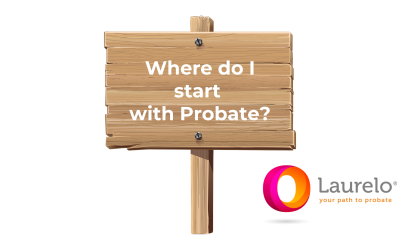How does Probate work?
Probate works slightly differently depending on whether the deceased person left a Will or not. The process is different, but the end result is the same – the executors (where there is a Will) or administrators (where there is no Will) are given the authority to deal with the estate.
Whether or not the deceased person left a Will can have a substantial impact on completing Probate. Wills are used to appoint executors, set out wishes in relation to funeral plans, guardians for children, distribution of property.
Probate of a Will
If the deceased person left a Will, they will have named one or more people in the Will to act as their executors. The executors will need to apply to the Probate Registry for a Grant of Probate (unless the estate does not require a grant to be administered). The Grant of Probate is a legal document which will enable the executors to deal with the assets and estate. They can use it to demonstrate that they have authority to collect the deceased person’s property, money and possessions and distribute them as set out in the Will.
Probate where there is no Will
If the deceased person did not leave a Will or it is invalid for some reason, the law sets out how the Probate process works and who is entitled to administer the deceased person’s estate. There is a set order of people who can do this, beginning with the deceased person’s:
- Husband, wife or civil partner
- Children (if 18 or over) or grandchildren (if 18 or over) if their parent died before the deceased person
- Parents
- Brothers and sisters
- Other family members
The people entitled to administer the deceased person’s estate where there is no Will are called administrators. The administrators can apply to the Probate Registry for a Grant of Representation (usually a Grant of Letters of Administration). This, like a Grant of Probate, is a legal document which will enable the administrators to deal with the deceased person’s assets and distribute them to the people entitled to them under law.
PROBATE SEARCH
The Government provides a Probate search service which allows you to search for any Grants of Representation since 1996. When someone dies their Will becomes a public document, as does the Grant of Representation (the legal document which enables executors or administrators to deal with the deceased person’s assets).
LAURELO PROBATE LATEST NEWS
Death, Grief and Support: Why We’re Proud to Partner with Child Bereavement UK
Death is something that touches every one of us. Yet, for such a universal experience, it often remains one of the least talked about topics in daily life. At Laurelo, we believe in changing that. We believe in open conversations, honest support, and making sure...
Where Do I Start With Probate?
Losing someone you love is incredibly hard. Alongside the emotional toll, you're often faced with the practical reality of sorting out their estate – and the word "probate" can suddenly feel confusing, stressful, and overwhelming. If you’re unsure where to begin,...
What’s New at Laurelo: Wellbeing, Growth and Giving Back
At Laurelo, we talk a lot about putting people first. That doesn’t just mean the families we support through Probate. It also means our team, the brilliant people who turn up every day with empathy, dedication and kindness in everything they do. We’re proud to say...
Here at Laurelo, we're committed to our clients and their path to probate
Here at Laurelo, we're committed to our clients and their path to probate




